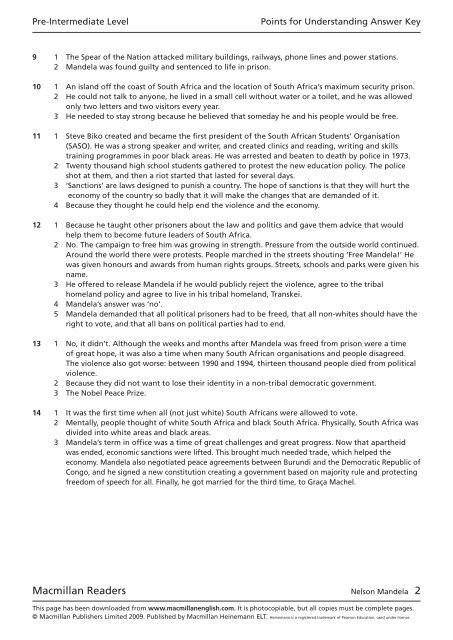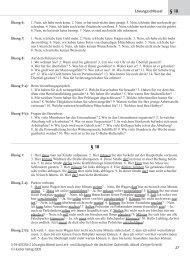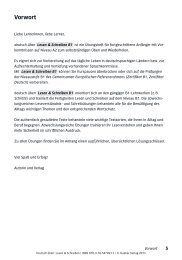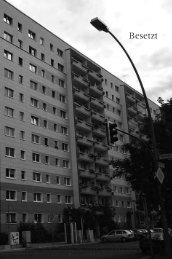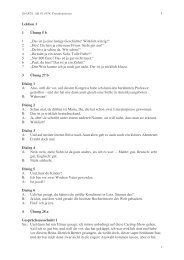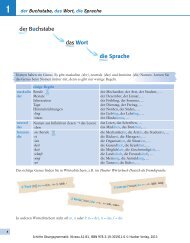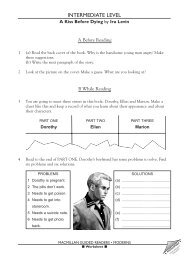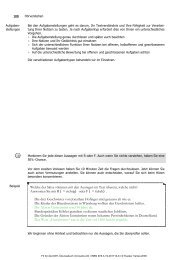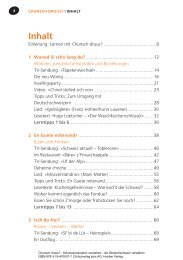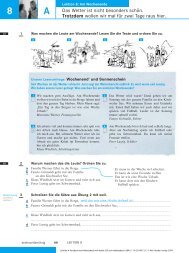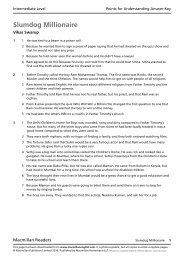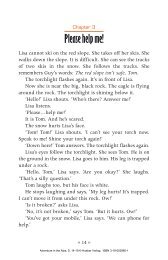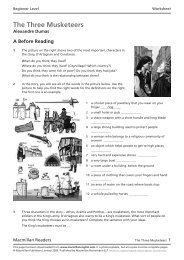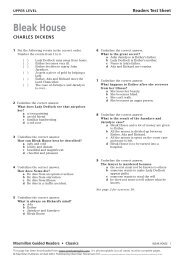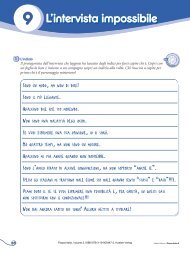Nelson Mandela - Macmillan Readers
Nelson Mandela - Macmillan Readers
Nelson Mandela - Macmillan Readers
Create successful ePaper yourself
Turn your PDF publications into a flip-book with our unique Google optimized e-Paper software.
Pre-Intermediate Level<br />
Points for Understanding Answer Key<br />
9 1 The Spear of the Nation attacked military buildings, railways, phone lines and power stations.<br />
2 <strong>Mandela</strong> was found guilty and sentenced to life in prison.<br />
10 1 An island off the coast of South Africa and the location of South Africa’s maximum security prison.<br />
2 He could not talk to anyone, he lived in a small cell without water or a toilet, and he was allowed<br />
only two letters and two visitors every year.<br />
3 He needed to stay strong because he believed that someday he and his people would be free.<br />
11 1 Steve Biko created and became the first president of the South African Students’ Organisation<br />
(SASO). He was a strong speaker and writer, and created clinics and reading, writing and skills<br />
training programmes in poor black areas. He was arrested and beaten to death by police in 1973.<br />
2 Twenty thousand high school students gathered to protest the new education policy. The police<br />
shot at them, and then a riot started that lasted for several days.<br />
3 ‘Sanctions’ are laws designed to punish a country. The hope of sanctions is that they will hurt the<br />
economy of the country so badly that it will make the changes that are demanded of it.<br />
4 Because they thought he could help end the violence and the economy.<br />
12 1 Because he taught other prisoners about the law and politics and gave them advice that would<br />
help them to become future leaders of South Africa.<br />
2 No. The campaign to free him was growing in strength. Pressure from the outside world continued.<br />
Around the world there were protests. People marched in the streets shouting ‘Free <strong>Mandela</strong>!’ He<br />
was given honours and awards from human rights groups. Streets, schools and parks were given his<br />
name.<br />
3 He offered to release <strong>Mandela</strong> if he would publicly reject the violence, agree to the tribal<br />
homeland policy and agree to live in his tribal homeland, Transkei.<br />
4 <strong>Mandela</strong>’s answer was ‘no’.<br />
5 <strong>Mandela</strong> demanded that all political prisoners had to be freed, that all non-whites should have the<br />
right to vote, and that all bans on political parties had to end.<br />
13 1 No, it didn’t. Although the weeks and months after <strong>Mandela</strong> was freed from prison were a time<br />
of great hope, it was also a time when many South African organisations and people disagreed.<br />
The violence also got worse: between 1990 and 1994, thirteen thousand people died from political<br />
violence.<br />
2 Because they did not want to lose their identity in a non-tribal democratic government.<br />
3 The Nobel Peace Prize.<br />
14 1 It was the first time when all (not just white) South Africans were allowed to vote.<br />
2 Mentally, people thought of white South Africa and black South Africa. Physically, South Africa was<br />
divided into white areas and black areas.<br />
3 <strong>Mandela</strong>’s term in office was a time of great challenges and great progress. Now that apartheid<br />
was ended, economic sanctions were lifted. This brought much needed trade, which helped the<br />
economy. <strong>Mandela</strong> also negotiated peace agreements between Burundi and the Democratic Republic of<br />
Congo, and he signed a new constitution creating a government based on majority rule and protecting<br />
freedom of speech for all. Finally, he got married for the third time, to Graça Machel.<br />
<strong>Macmillan</strong> <strong>Readers</strong> <strong>Nelson</strong> <strong>Mandela</strong> 2<br />
This page has been downloaded from www.macmillanenglish.com. It is photocopiable, but all copies must be complete pages.<br />
© <strong>Macmillan</strong> Publishers Limited 2009. Published by <strong>Macmillan</strong> Heinemann ELT. Heinemann is a registered trademark of Pearson Education, used under licence.


